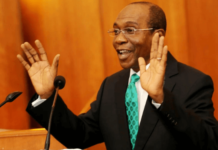Aruviere Martin Egharhevwa is a young qualified Nigerian lawyer living in London, United Kingdom. In this interview with Saturday Vanguard Business, Urhobo born citizen of Delta State, laments the rate of unemployment among Nigerian youths, epileptic power supply that has crippled business operation in the country, insecurity and poor level of economic development in the country. Excerpts:
Since the ban of Okada in some states in Nigeria without a better replacement, insecurity is on the increase, what do you think is the solution?
Today, Nigeria is increasingly being seen and projected as a lawless state. The impression is that you can commit any type of crime and nothing would happen to you.
The law enforcement agencies are seen by the perpetrators of crimes as impotent; and the courts, where they are meant to be prosecuted, as prostrate.
Thus anything can go and the system is helpless about it. It is for this and all such failures by the state that many see Nigeria either as a failed or failing state, depending on persuasion.
There is upsurge in crimes in Nigeria because it is not only lucrative; criminals hardly pay the price for their activities.
The nation’s dysfunctional judiciary has emboldened them the more. Suspects are arrested, but before you could think of what becomes of them they are released either on bail or surreptitiously. The same set of people goes back to their pastime.
Renowned American jurist, Justice Oliver Wendell Holmes, Jr., once said that crime in the eye of a bad guy is the consequences that go with its commission. The only solution to crime is justice; somebody must and should be held responsible for a crime. Thereafter, prosecution and subsequent sentencing.
Do you think the oil companies in the Niger Delta have done enough empowerment for their youths?
No! They have failed the people abysmally. Empowerment, even development and employment is comatose. Take my immediate community for example, Kokori Inland. We produce one of the best crude oil in the world but today the community is worse for it. No jobs for my people! Graduates, skilled workers and the rest of them are roaming our streets dejected and rejected by the multi nationals operating in the Niger Delta region.
Could you please suggest how Nigerian youths can be empowered?
Criminologists have known for ages that economic disaffiliation is one of the most potent triggers of counter-cultural and violent tendencies. They have known, too, that the disempowering tyranny of poverty and the all-too-familiar indiscretions that the exuberance of youth instigate are a combustible mix that all too often ignite extreme social conflagrations.
Nigerians don’t need any high-minded social science theorist to tell them this. They know, from their recent live experience, that poverty and youth don’t mix well. The Boko Haram violence, although now definitely fizzling out, is eloquent testimonial endorsement of this fact.
It isn’t accidental that Yobe and Borno states, which have the dubious honour of being among Nigeria’s states that are poor, bear the worst burden of the Boko Haram insurgency. Although the ideological masterminds of Boko Haram’s terror aren’t poor, its foot soldiers are recruited from the flotsam and jetsam of the populace, from the economically disaffiliated in the society, from young people who apparently have nothing to live for and can therefore be easily manipulated into unthinking, unreflecting extremism.
If British politician Benjamin Disraeli is right that “the youth of a nation are the trustees of posterity,” then the imperative of governance should be to give the youth of any society something to live for. In other words, the fulcrum of governance should revolve around securing the future of the youth, rejuvenating their hopes, and empowering their present.
Nigerians pay high tariff on power supply, yet they don’t have it. Recently, it has been increased, is it how it is being done abroad?
Not at all, you enjoy whatever you pay for. I must quickly state it that, I consider it unfair, unjust and unacceptable for government to place the big burden of electricity tariff on customers despite the increasingly deteriorating services of PHCN. There is no justification for it especially when the generality of electricity consumers across the country are yet to derive sustainable satisfaction from the services provided by the PHCN.
In spite of the high tariff, electricity supply across the country remains erratic. Domestic and industrial electricity consumers are not getting value for the outrageous monthly electricity bills they are forced to pay for poor services rendered by PHCN.
Across the country, businesses of artisans, small-scale entrepreneurs and other investors are being crippled by erratic electricity supply.
This has led to more blue-chip companies relocating from Nigeria to neighboring countries, where conducive operating environment is guaranteed. Whereas in Nigeria that aspires to be among the first 20 frontline economies in the world by 2020, 120 million of the 160 million people after 53 years of independence, have no access to electricity supply.
Also, as at 2006, more than 60 million generators were imported into the country yearly while a whopping sum of N1.6 trillion was expended on fueling generators.
It is scandalous that even The Presidency and the various tiers of government across the country are contributors to this avoidable waste and drain on the financial resources of the country. Importation of generators has become a big and highly lucrative business handled by a powerful and influential cabal. This seems why over the years, nothing is working in the power sector.
As long as the generator business is booming, the problem of epileptic power supply will persist since there is criminal collaboration between importers of generators and some unpatriotic and corrupt persons in high places.




